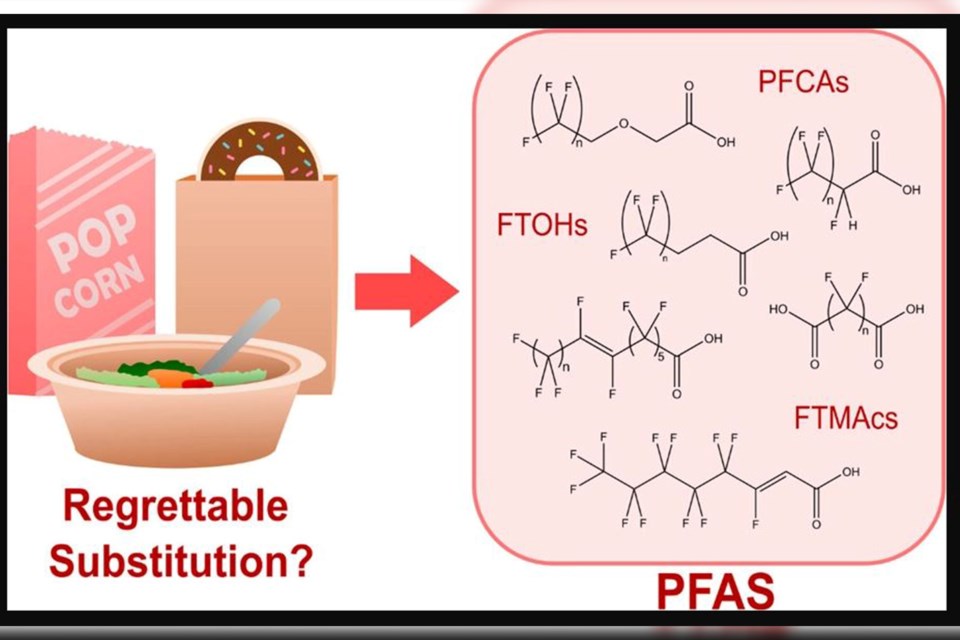A newly published study in the Environmental Science & Technology Letters journal has discovered trace amounts of toxic compounds in several fast food packaging materials from food dispensing sources in Toronto.
Although the report was sourced from Toronto, researchers said the findings would apply to specific food packaging materials across Canada.
The packaging may be familiar to consumers as the compostable packaging (plant-fibre packaging) used for such things as burrito bowls, paper popcorn bags and pastry containers that are coated with PFAS, or per- and polyfluoroalkyl substances.
Part of the concern arises from the fact the Government of Canada has decided to limit the use of single-use plastics to the point that it might increase the usage of plant-fibre based packaging.
Exposure to PFAS could increase cholesterol levels, increase the risk of kidney cancer, testicular cancer, cause low birth weight, decreased fertility and endocrine disruption.
The research, published Tuesday morning in the journal Environmental Science & Technology Letters, analyzed 42 different samples of compostable fast food packaging sourced from restaurants in Toronto. Traces of PFAS were detected in just under half the samples, with 26 per cent containing what were considered high levels of the compounds.
The environmental study said PFAS chemicals are used globally and comprise more than 4,700 individual compounds.
"They have been intentionally added to food packaging for decades to confer grease and water repellency. PFAS are inherently persistent, and many are mobile, bio-accumulative, and/or toxic," said the study.
"Several studies have documented the widespread use of PFAS in food packaging, although only one was from Canada," said the report.
The document also stated that "PFAS can migrate from food packaging into food depending on the type of material, contact time, temperature, and PFAS chain length."
Research professor Miriam Diamond, one of two principal investigators for the study, was quoted as saying that the food industry in several countries is moving away from using PFAS, but Canada is still researching the issue. Diamond said she is hoping the Toronto-based study will provide the momentum to get action on the PFAS in Canada.
The study reported that funding funding was provided by Environment and Climate Change Canada, Great Lakes Protection Initiative (GCXE21P039), Natural Sciences and Engineering Research Council of Canada (NSERC, RGPIN-2017-06654), and by charitable contributions to the Green Science Policy Institute, including from the Target Foundation.
Len Gillis covers health care and mining for Sudbury.com.
